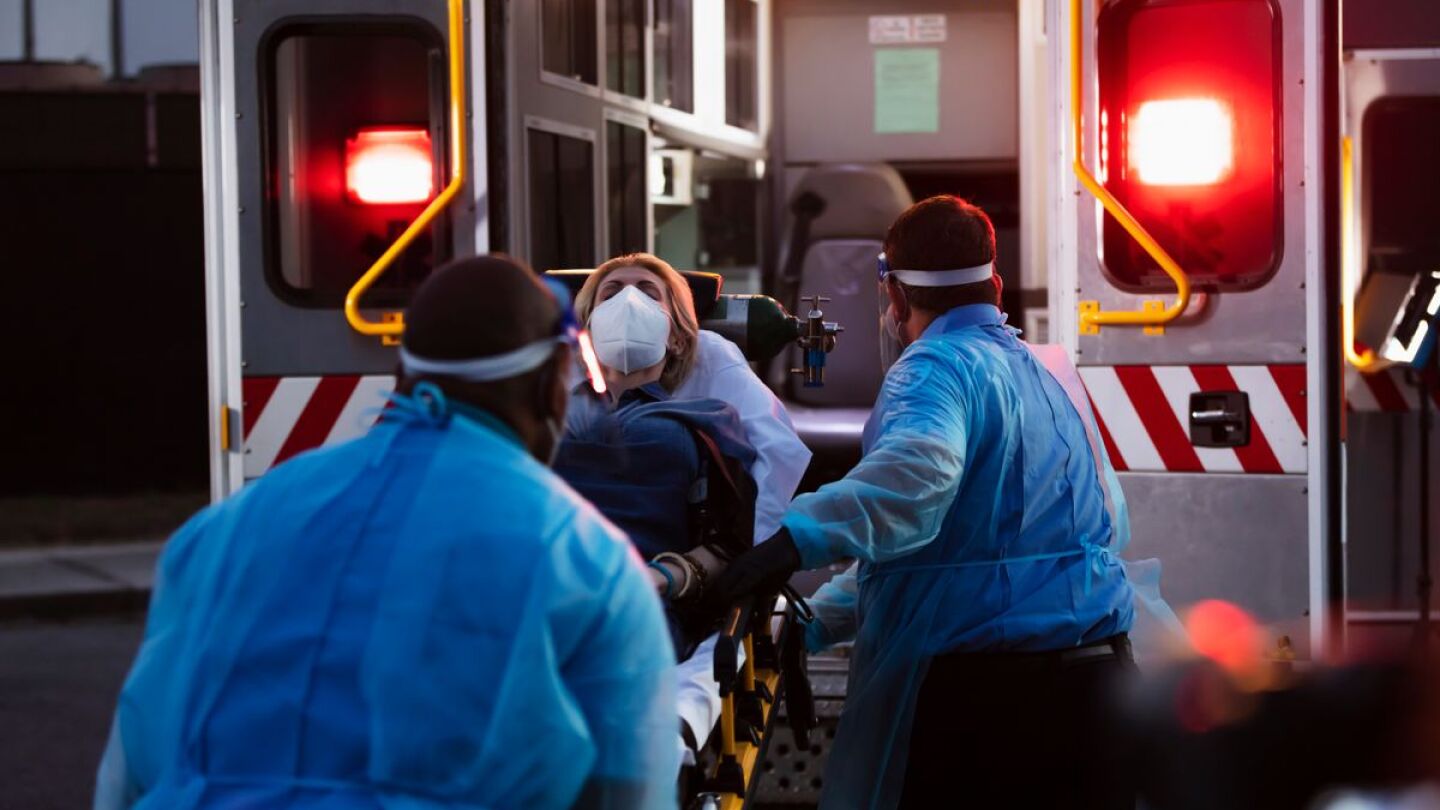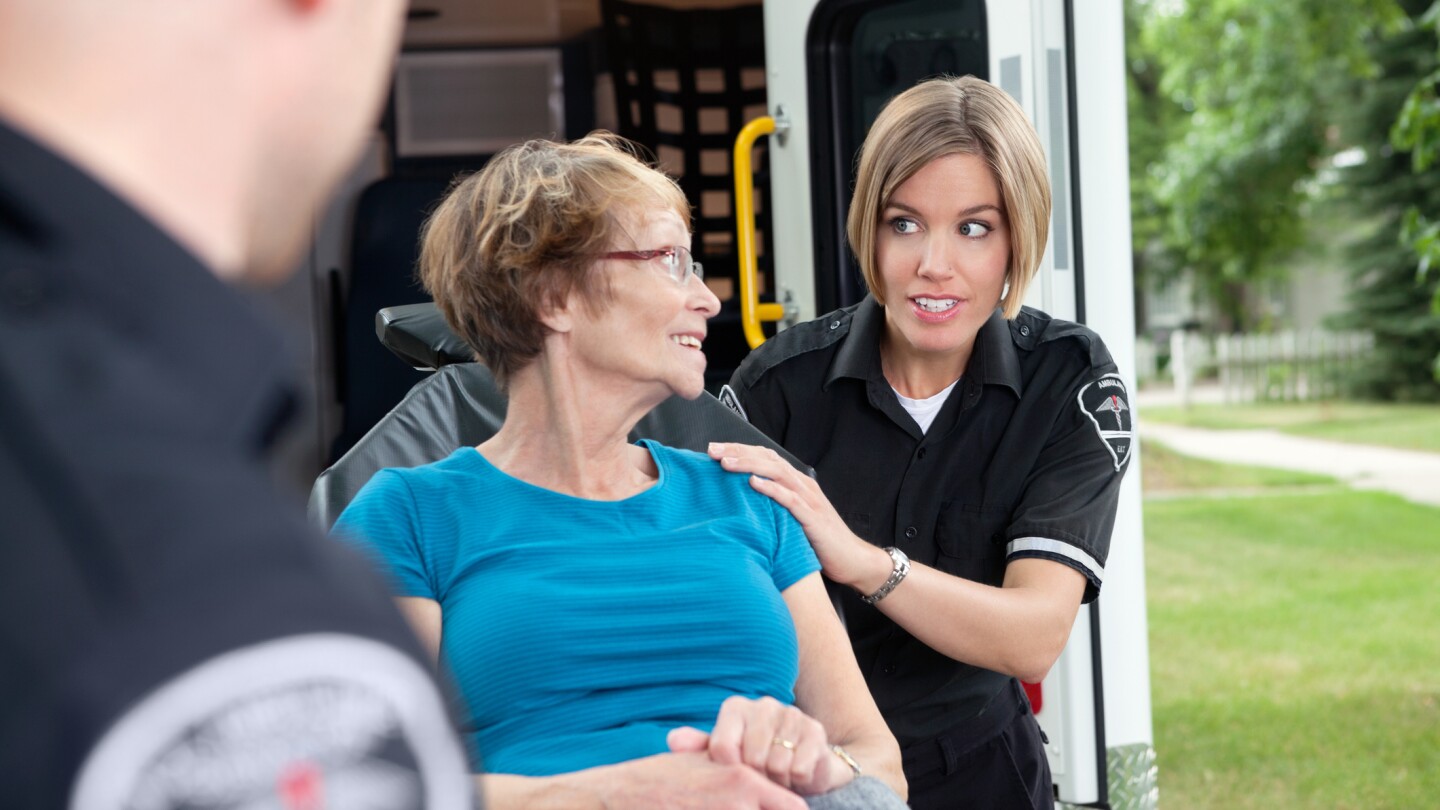Mental Health
MMR shares their journey to adopt a pet who provides unconditional support
Chest pain, rapid heartbeat, shortness of breath: While panic attacks and anxiety attacks share common symptoms, they also have distinct differences
Building mental and physical resilience isn’t just important — it’s essential for EMS professionals. If your program isn’t gaining traction, these 5 roadblocks could be to blame.
Readers sound off on what’s attracting new talent and keeping members satisfied
Translating data into information, and information into action
Do those in public safety do a good job of taking advantage of what’s available to help them in their times of need?
The job of first responders can be rewarding, but it can also be difficult; learn how to combat stress on the job
By listener request, Inside EMS cohosts Chris Cebollero and Kelly Grayson tackle the topic of resiliency; submit your topic requests to theshow@ems1.com
Hall Ambulance has partnered with Sunny Mueller, a licensed clinical professional, to provide on-demand mental health assistance
“Everybody has their own demons from this fire,” said sheriff’s Deputy Mark Aldridge
One-third of EMS1 poll respondents picked up 16 or more overtime shifts in the last three months
Members can access crisis assistance plus resources for a variety of issues such as stress, family conflict, financial or legal concerns, addiction, grief and more
You cannot fill another’s bucket if your own bucket is empty; invest in yourself
“I needed to help them. I needed to make sure that our people were good and we could take care of these people, and that’s why I chose to stay.”
CAL FIRE Captain Chris Wetzel and his treating mental health provider detail his road from defeat to appreciation in the aftermath of tragedy
Who among us, in a moment of fatigue and frustration, hasn’t imagined parking the ambulance somewhere the sun doesn’t shine
“For the third time, we told you we are out of service,” an EMT is heard saying on a recording of Baltimore City Fire Department radio traffic
The new Medicaid-supported plan allows the state to provide and expand programs like Eugene-based CAHOOTS, whose crews include paramedics
The HHS funding is intended to ensure that callers receive culturally sensitive support plus follow-up care if needed, but only 100 grants will be awarded
The transition from shift work to desk work typically brings a more sedentary lifestyle that needs to be actively resisted
The city is looking to change the depression and suicide rate among police officers, firefighters and EMS providers
Bullets hit the EMS providers’ vehicle before police arrested the suspect and transported him to a local hospital for a mental health evaluation
Clinical psychologist Rachelle Zemlok, a firefighter spouse, emphasizes the role first responder families play in career decisions
Eliminating the distressing sights and sounds of the job is impossible, but we can better prepare first responders for dealing with emotional scenes
The Public Safety Officer Support Act supports first responders who experienced PTSD or died by suicide following exposure to certain traumatic events
A career in public safety amplifies our natural human tendency to anticipate danger, which can be complicated when it expands beyond work
AMR providers started transporting mental health patients in 2016, and some say their increased contact with people having such crises puts them at increased risk
Organizers and aldermen say the city’s Crisis Assistance Response and Engagement program has too much police influence and needs more mental health providers
A focus on injury prevention, psychological first aid and financial solvency has big implications for health, happiness and finances
While every situation is different, most people are more receptive to a sympathetic approach than an authoritative command
Michael Levin, an entrepreneur and motivational speaker, encouraged Pinnacle EMS attendees to embrace an entrepreneurial workplace that creates powerful positive change
“What we see in this career, the calls that we get, can take a toll on somebody’s mental health and wellness,” said Cheshire County Sheriff Eli Rivera
Don’t allow workplace harassment to distract you from your mission
MOST POPULAR
- Legal matters: Chemical restraint
- Family of medic who died after alleged bullying by KCFD supervisor wins lawsuit
- First responder mental health: 5 stories of heartbreak and hope
- CDC: Suicide is second leading cause of death for people 10 to 34
- Remember 2 Things: The after effects of a disaster response

































